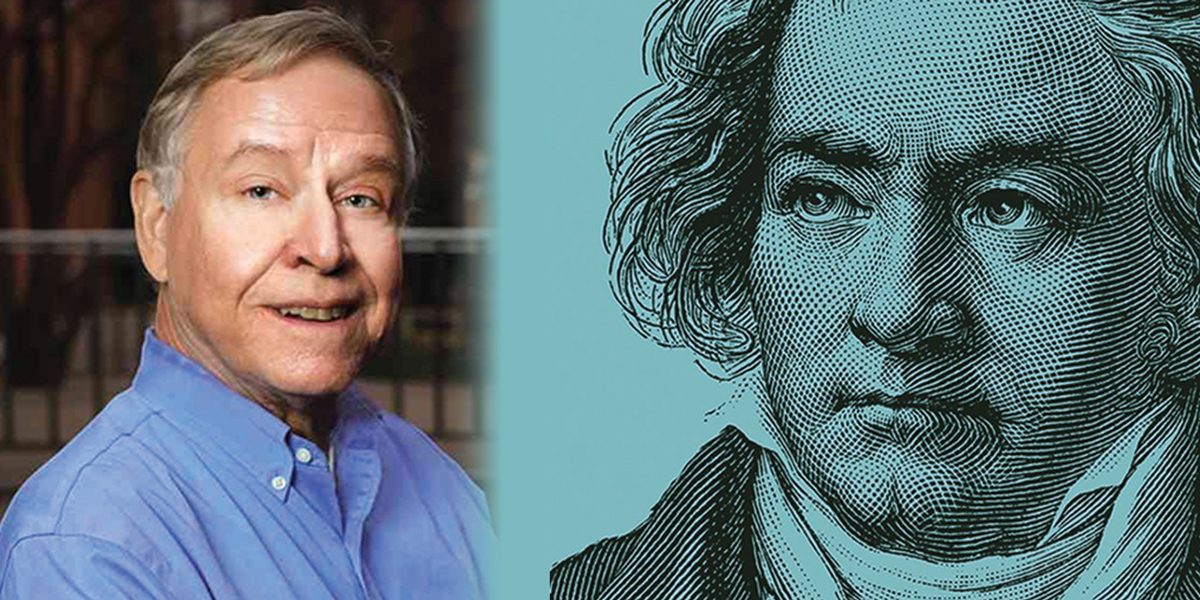Baylor prof’s personal experience gives rare insight into Beethoven’s life as a deaf composer

December marks the 250th birthday of legendary composer and pianist Ludwig van Beethoven, and Baylor has its very own expert on the musician — one with a unique connection.
Dr. Robin Wallace has taught musicology at Baylor since 2003. Some of his research has focused on Beethoven’s deafness, aiming to understand how the composer managed to create such beautiful music without being able to hear it well. Wallace’s interest in the composer’s medical history is rooted in a personal connection: the struggles his late wife faced with hearing loss.
Barbara Wallace experienced hearing issues for almost her entire adult life, and found herself completely deaf by 2003. A cochlear implant in her left ear restored some hearing, but forced her to relearn fundamental hearing skills. Barbara’s journey back to recognizing sounds led to a breakthrough in Wallace’s research. Perhaps, Wallace suggests, Beethoven may have gone through a similar process as his hearing disappeared.
[READ MORE of the Wallaces’ story in this Spring 2020 Baylor Magazine feature]
“I discovered we don’t really hear with our ears. We hear with our brains,” Wallace explains. “Sound comes to us through the body, vibrations, and memory. I increasingly believe, for Beethoven, that hearing came through those physical actions of music making.”
This connection between Beethoven and Barbara spawned Wallace’s latest book, Hearing Beethoven: A Story of Musical Loss and Discovery. Both stories ably demonstrate that whether sudden or gradual, and though devastating and disrupting, hearing loss needn’t be the defining element for those who encounter it.
As we reflect on the hardships we’ve faced in 2020, Wallace feels Beethoven’s story can provide some solace.
“Beethoven lived his life in a world he did not expect, facing adversities he could never have anticipated. But he did it all with grace,” says Wallace. “It turns out we really do need Beethoven this year, more than we could ever have imagined. We can still honor him by doing what he did: improvising, carrying on through difficult times, and finding new ways of doing things when the old ways no longer worked.”
Sic ’em, Dr. Wallace!

